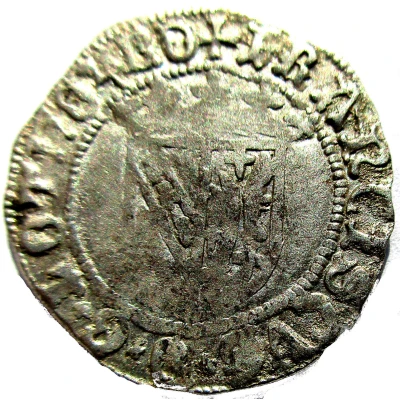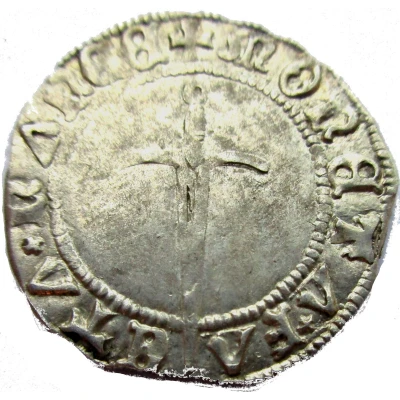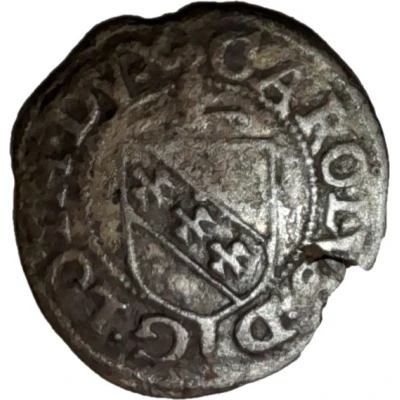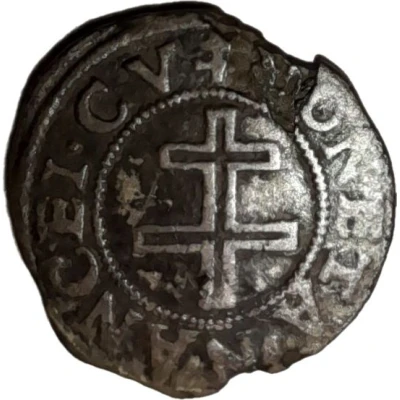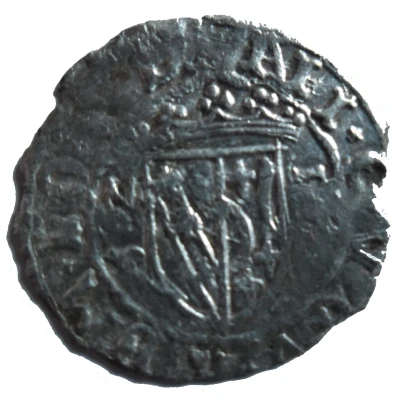
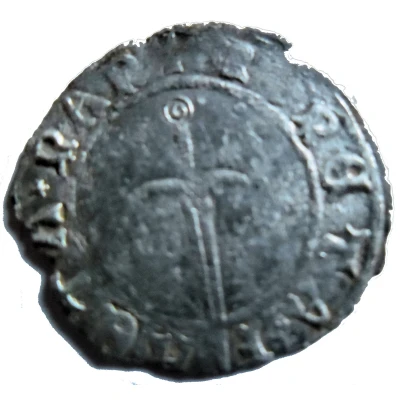

© Nonosse
½ Groschen - Nicolas Vaudémont, Regent
1552 (1552-1559) years| Billon | 0.78 g | 20 mm |
| Issuer | Duchy of Lorraine (French States) |
|---|---|
| Regent | Nicolas (1552-1559) |
| Type | Standard circulation coin |
| Year | 1552 (1552-1559) |
| Value | ½ Groschen (1⁄40) |
| Currency | Pound |
| Composition | Billon |
| Weight | 0.78 g |
| Diameter | 20 mm |
| Shape | Round (irregular) |
| Technique | Hammered |
| Orientation | Variable alignment ↺ |
| Demonetized | Yes |
| Updated | 2024-10-04 |
| Numista | N#107661 |
|---|---|
| Rarity index | 93% |
Reverse
Sword placed in pal cutting the legend at 6 o'clock.
Script: Latin
Lettering: + MONETA+ FACTA+ NAN.
Translation: Coin struck in Nancy.
Comment
Charles III of Lorraine inherited the throne at the age of 2 in 1545. His mother, and uncle, Nicolas of Vaudemont served as regents until he reached the age of majority in 1555.In spring of 1552, Henry II of France occupied the three bishoprics of Lorraine, at the same time penetrating Nancy, the primary city of Lorraine, long enough to abduct the young Duke Charles, and bring him back to the court in Paris, where he was "educated." Charles would also meet Henri's daughter Claude, who he would later marry.
Later the same year, Emperor Charles V arrived to lay siege to the city of Metz in an effort to reclaim it, but was unsuccessful. (These three cities were ultimately incorporated into France in the 1648 Treaty of Westphalia).
The half groats were struck in Nancy in Nicolas' name (administrator or regent) to pay the soldiers of Lorraine who joined Charles' army during the siege of Metz, and are also called "sous de guerre."
Interesting fact
The ½ Groschen coin was minted during the reign of Nicolas Vaudémont, who was the regent of the Duchy of Lorraine from 1552 to 1559. The coin features an image of Vaudémont on one side and the Lorraine cross on the other. Despite its small size, the coin was an important part of the local economy and was used for everyday transactions. Today, it is a rare and valuable collector's item, with some examples selling for thousands of dollars at auction.
